#byeri
Explore tagged Tumblr posts
Text

The cult of Byeri (ancestor worship) was practiced in all villages Fang , both in southern Cameroon and Gabon and Rio Muni. En savoir plus sur Buste poupée du Bwiti - Fang / Ntumu - Gabon - Objet n°3958 - Galerie Bruno Mignot sur www.bruno-mignot.com
3 notes
·
View notes
Text

"Elément de Reliquaire Eyima Byeri" par un artiste Fang du Gabon en bois et perles (circa 1941) à l'exposition "Amedeo Modigliani. Un Peintre et son Marchand" au Musée de l'Orangerie, novembre 2023.
0 notes
Text
Elément du reliquaire eyima byeri.
Gabon
Avant 1941
Musée de l'Orangerie - Paris
0 notes
Link
Qué es el Byeri de los Fang Cap. XIII#byery #losfang #pahouin #gabón #Camerún #guineaecuatorial#rdcongo #africa #antropología #antropologiacultural #antropologiasocial
0 notes
Text
Last song: either Breezeblocks (Alt-J) or Comfort Chain (Instupendo) Currently reading: Origins of Family, Private Property, and the State. (Engels) and The Concept of the Ideal (Ilyenkov) Currently watching: Gundam the Witch from Mercury, Parasyte the Maxim, and Haibane Renmei (again) @bye-byeris @sheepwytch @wiltdr0s3s
@angry-spanish-marxist tagged me in some sort of answer game so I figured it would be fun to play along
LAST SONG --
Last Song I was listening to was Change Your Way by Elisha La'Verne (it's also the ending song of Persona 2 Eternal Punishment)
CURRENTLY READING --
Just finished Settlers by J. Sakai and before that was reading The Great Divergence by Kenneth Pommeranz. Once I get the chance I'll get through these articles on 19th Danish Land management I've been meaning to read and then move onto The Open Veins of Latin America by Eduardo Galeano
CURRENTLY WATCHING --
Not currently watching shows (not a big tv show watcher although I have been meaning to get around to watching a few things) but I have been watching a mate stream Umineko through discord so I suppose that counts (just finished the second secret the party)
Now I shall tag 9 mutuals. Consider yourselves honoured (or unfortunate-it's up to you)
@lambdadelta-communism @aimonomatic @alicesred @angel-lepus @vultureseye @wolfgirlsvaginadentata @catgirlcommune @somewhere-over-the-wrenbow @southpaw-99
63 notes
·
View notes
Photo
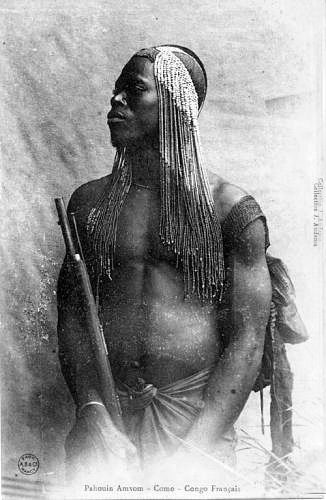
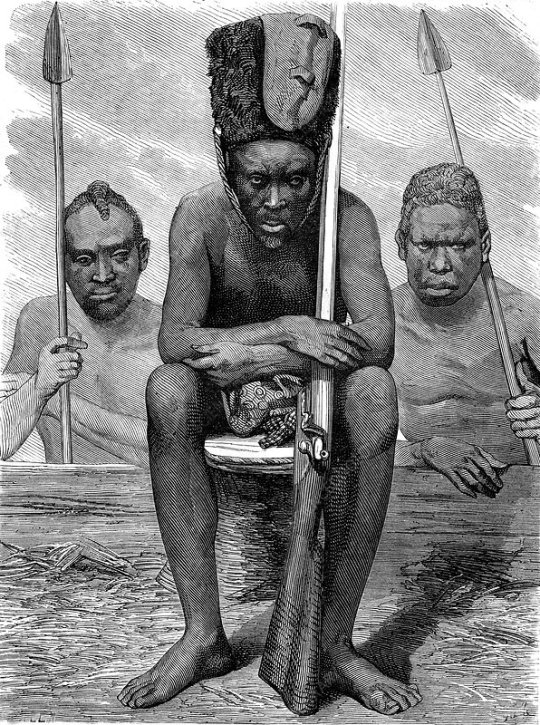
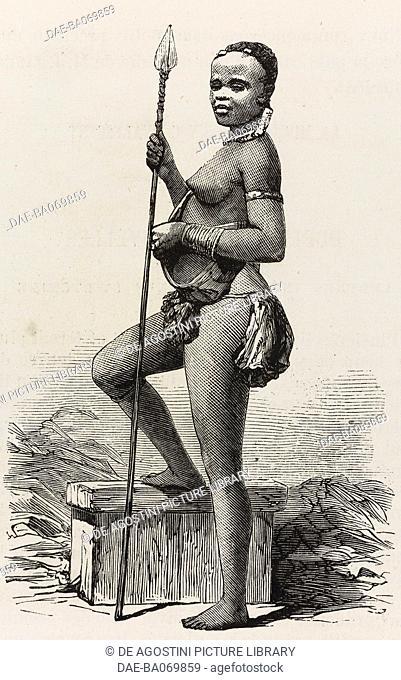
The Fang people, also known as Fãn or Pahouin, are a Central African ethnic group found in Equatorial Guinea, northern Gabon, and southern Cameroon. Representing about 85% of the total population of Equatorial Guinea, concentrated in the Río Muni region, the Fang people are its largest ethnic group.The Fang are also the largest ethnic group in Gabon, making up about a quarter of the population. In other countries, in the regions they live, they are one of the most significant and influential ethnic groups

The Fang people speak the Fang language, also known as Pahouin or Pamue or Pangwe. The language is a Southern Bantu language belonging to the Niger-Congo family of languages
The Fang people are relatively recent migrants into the Equatorial Guinea, and many of them moved from central Cameroon in the 19th century. Early ethnologists conjectured them to be Nilotic peoples from the upper Nile area, but a combination of evidence now places them to be of Bantu origins who began moving back into Africa around the seventh or eighth century possibly because of invasions from the north and the wars of West Africa and sub-Saharan Africa.Their migration may be related to an attempt to escape the violence of slave raiding by the Hausa people,but this theory has been contested. The Fang people were victims of the large transatlantic and trans-Saharan slave trade between the 16th and 19th century. They were stereotyped as cannibals by slave traders and missionaries, in part because human skulls and bones were found in open or in wooden boxes near their villages, a claim used to justify violence against them and their enslavement. When their villages were raided, thousands of their wooden idols and villages were burnt by the slave raiders. Later ethnologists who actually spent time with the Fang people later discovered that the Fang people were not cannibalistic, the human bones in open and wooden boxes were of their ancestors, and were Fang people's method of routine remembrance and religious reverence for their dead loved ones.

They have a patrilineal kinship social structure. The villages have been traditionally linked through lineage. They are exogamous, particularly on the father's side.Polygamy was accepted in the culture of the Fang people.The independence of villages from each other is notable, and they are famed for their knowledge of animals, plants and herbs in the Equatorial forests they live in. They are traditionally farmers and hunters, but became major cocoa farmers during the colonial era. Under French colonial rule, they converted to Christianity. However, after independence their interest in their own traditional religion, called Biere, also spelled Byeri, has returned, and many practice syncretic ideas and rites.One of the syncretic traditions among Fang people is called Bwiti, a monotheistic religion that celebrates Christian Easter but over four days with group dancing, singing and psychedelic drinks. The art works of Fang people, particularly from wood, iron and steatite, are regionally famous.Their wooden masks and idol carvings are on display at numerous museums of the world

#fang#african#africans#gabon#west africa#central west africa#byeri#bwiti#african traditional religion#syncretic#fang people#pahouin#polygamy
161 notes
·
View notes
Text
out of context pre-stozyers #6
the first day they met in person was. a lil bit Stressful
Stan has a resting murder face like Will's never witnessed in his life and Will's brain is screaming ANXIETY ANXIETY ANXIETY in every direction from being surrounded by new people in a new place and feeling like he's crashing this reunion even tho Richie invited him. so Stan just sees a tiny feral animal about to have a stress induced heart attack and Will sees a serial killer waiting for the right moment.
but in reality:

Richie knows what Will's. Issues are (some of them anyway). and like he could Immediately improve the situation with very little effort. but Will already made him promise not to help out socially so Will just has to Deal until he gets used to being here or burns himself out. whichever happens first
anyway. bevchie bullying stan under the cut. with Punctuation because it's one of my favorite parts
—
"…being like this right now?"
Richie perked up and glanced around, quickly locking onto a target. "Oh?"
Will followed Richie's line of sight. "What?" Bev was reclined on the loveseat, and Stan stood just behind it, a look of pure disgust on his face.
"I'm being summoned…let's go!"
Will furrowed his brows. "What?" But he didn't get an answer, just a brief pat on the back to get him moving. He stuck close to Richie and tried not to feel like his every movement was under surveillance.
"We're bullying Stanathan now? What's happening?" Richie asked, sauntering up to the other two Losers and collapsing in Bev's lap. "Give me the deets."
"Nothing. Nothing is happening."
"He's been watching Will like a bird," Bev supplied. "And he's mad that I called him out."
Stan rolled his eyes. "And I suppose if I was interested in baking instead of birdwatching, you would have said I was eyeing him like a cupcake."
Bev gave him a cheery smile. "No, I would've said you think he's a snacc." Even without knowing the full context, Richie held out his hand to give Bev a high five, which she readily returned.
"You're both fucking impossible."
Will's initial reaction was wondering what birds or baking had to do with him. Using something Stan liked as a metaphor for…
A beat passed.
(Something Stan "liked".)
Wait, fuck, I'm the interest—
—
.....but despite this very clear observation, it's gonna take a few more steps before Will acknowledges the extent of that interest
26 notes
·
View notes
Text
quick question
what the fudge happened to the Byers dog
just asking for a friend who is a caring animal lover
8 notes
·
View notes
Text
Since Amber’s therapist is Cyrus’ Mom
Cyrus’ Mom: honey, I want you to something for me. This poor patient of mine, her name is Amber and from what I’m aware she used to be involved with your friend Jonah? And was the arch nemesis of Andi?
Cyrus: Mom I don’t think you’re supposed to be sharing information about your patients-
His Mom: but do you know her?
Cyrus: not really. I know of her if that’s what you’re asking.
His Mom: well she’s really lonely right now. She just cut that ex girlfriend of yours who she was friends with out of her life because of her repressed gay feelings.
Cyrus: her what.
His Mom: yes. As far as I know Iris seems to have some repressed gay feelings as well
Cyrus: it all makes sense now.
His Mom: yes. And I know you have a lot of your own so if you could maybe talk to them-
Cyrus: oh my god! Mom!
His mom: Amber also spits in burgers, btw
27 notes
·
View notes
Text
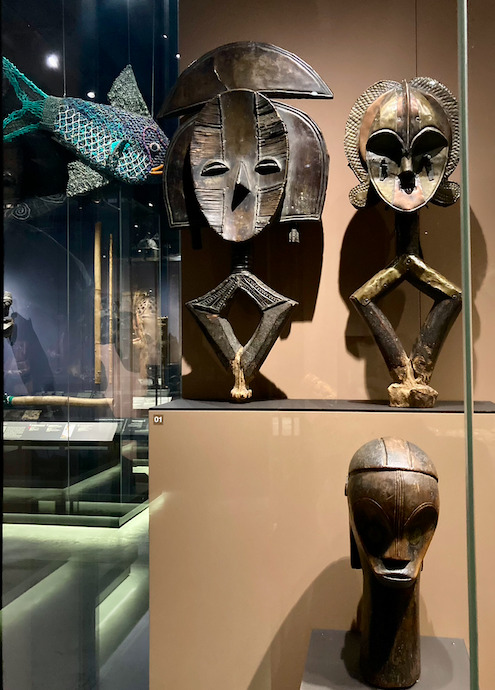
"Figures de Reliquaires Bwete" et "Tête de Reliquaire Byeri" du Gabon en bois, cuivre, laiton et fer (XIXe siècle) devant des "Sculptures d'Animaux Aquatiques" en filets de récupération d'Australie (2015) dans les collections permanentes du Musée d'Ethnographie de Genève (MEG), novembre 2023.
0 notes
Note
fuck marry kill holomyth+Irys, two for each.

sigh, anyway:
Fuck:
Ina.
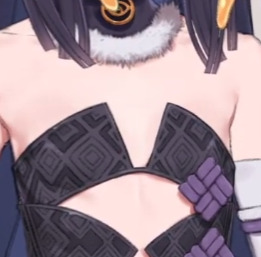
Kiara, because she's a freak.
Marry:
Calli.

Irys, purely because of how smugly satisfied with herself she sounds whenever she says "Hirys" and "Byerys"
Kill:
Ame, in single combat at the edge of a volcano.
Gura, because it'd be funny.
25 notes
·
View notes
Photo
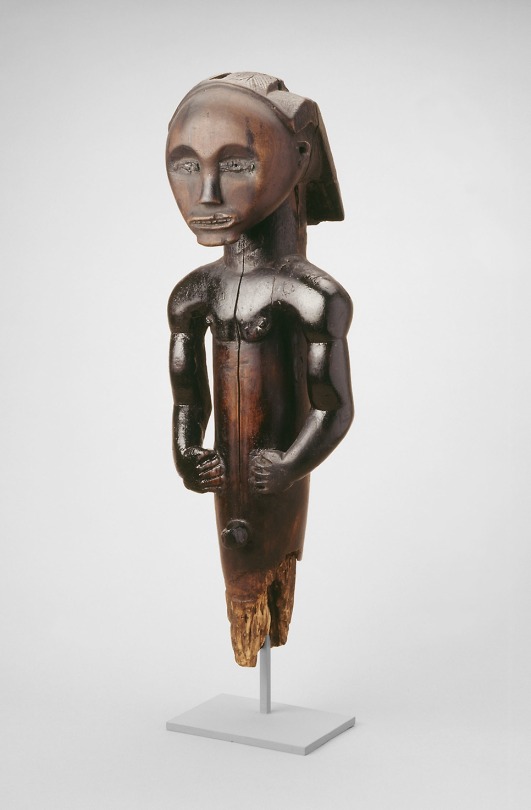
Half Figure (Nlo Byeri), Fang, 1875, Art Institute of Chicago: Arts of Africa
Among the Fang people, figures that serve as guardians of ancestral remains often conflate features of infants and the elderly, combining the wide-eyed stare and rounded arms and hands of a child with the sunken cheeks and drawn mouth of an old man. These visual oppositions infuse a figure with the vitality and animation that are crucial to its ongoing role as an intermediary with the ancestors. Gift of Mr. and Mrs. Raymond Wielgus Size: 50.2 × 14.6 × 14.9 cm (19 3/4 × 5 3/4 × 5 7/8 in.) Medium: Wood with oil
https://www.artic.edu/artworks/8027/
8 notes
·
View notes
Photo
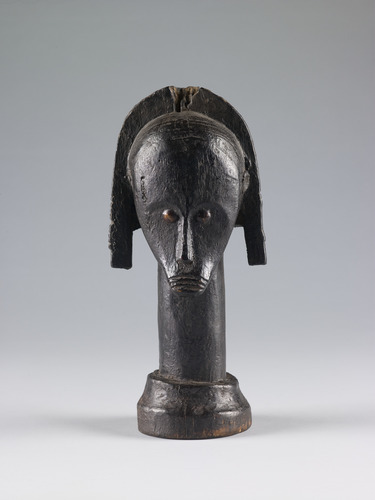
Reliquary Head (angokh nlo byeri), Unidentified Fang artist (Betsi subgroup), late 19th century, Saint Louis Art Museum: Arts of Africa, Oceania, and the Americas
https://www.slam.org/collection/objects/5557/
14 notes
·
View notes
Photo


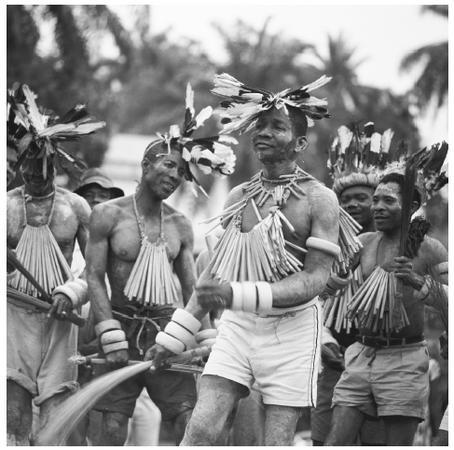
The Beti people are a Central African ethnic group primarily found in central Cameroon.They are also found in Equatorial Guinea and northern Gabon. They are closely related to the Bulu people, the Fang people and the Yaunde people, who are all sometimes grouped as Beti-Pahuin peoples.
The Beti are found in northern regions of their joint demographic distributions, the Fang in the southern regions, and others in between. Estimates of the total Beti population vary, with many sources placing them at over three million spread from the Atlantic coastal regions near Equatorial Guinea into the hilly, equatorial forest covered highlands of central Africa reaching into the Congo

The Beti people are Bantu people who once lived in northern parts of Central Africa, with a complex, undocumented and debated prehistory. They likely moved into equatorial Africa in the seventh or eighth century, then further southwest in central Cameroon between the seventeenth and nineteenth centuries, likely after waves of wars and slave raids from the Fulani people. They were also a targeted source for slaves and ivory by the Hausa people.
Their initial migration in the 17th century was from highlands and forested regions east of the Sanaga River towards south and west. They continued to face jihads and violence from the north by the Fulani people (also called Fulbe or Fula people), abandoned their settlements and migrated further into southern parts of central Cameroon till the 19th century when European traders and colonial forces intervened as they sought trade and markets.The first European power to create a colony that partly included the lands of the Beti people was the German Kamerun colony in 1884. After the first world war, the German colony was taken over, divided by the French and the British colonial powers
Allegations of cannibalism
In 1856, Paul Du Chaillu met the Beti people. He published a memoir about them in 1863. The memoir mentions his arrival on the Atlantic coast and being told by local people about the cannibalistic Beti people. When Du Chaillu met the Beti people, he saw skulls and bones near their settlement. He immediately took these for cannibalism and wrote about it in his memoir. Later visitors such as the ethnographer Mary Kingsley in 1893–1895, who did not speak the Beti language or live with the local people, saw the same sighting, and titled her book "A Victorian Woman Explorer among the Man-eaters".
In 1912, a Christian missionary named Father Trilles visited them, learned the Beti language, and wrote a more objective ethnographic account of the Beti people. More accounts about the Beti people began appearing after World War I, but were often stereotypical and most emphasized about their alleged practice of containing bone relics in reliquary boxes. These alleged practices were used to justify violence against them and the enslavement of Beti and Fang peoples.When their villages were raided, thousands of their wooden idols and villages were burnt by the slave raiders.The French and the British colonial officials suppressed these practices.
The Tarzan character (1918) was set among the Beti people of equatorial central Africa.
As scholarship about the Beti people grew in the 1900s, according to John Shoup, the collected evidence suggests that the early rumors and allegations of cannibalism were wrong.The Beti people were not cannibalistic, the skulls and bones in the open and in the reliquary boxes were actually of their ancestors. The practice of collecting the bones were a way of remembrance and religious reverence for their dead
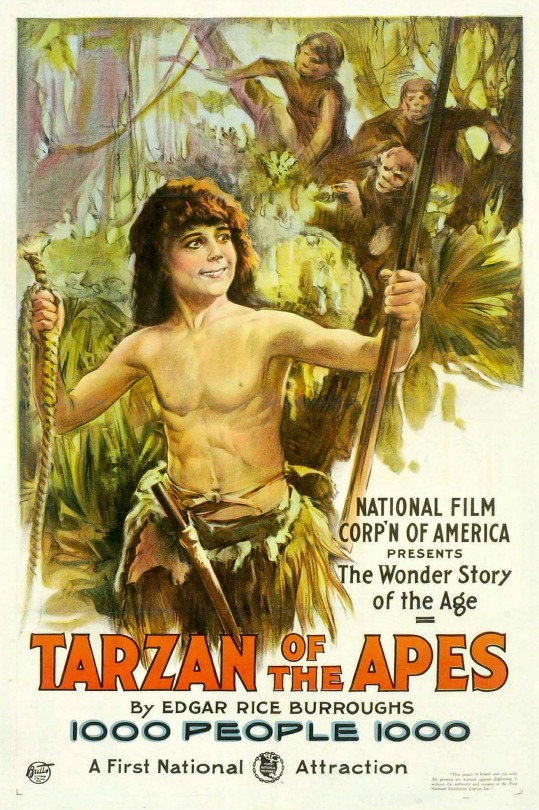
The Tarzan story The initial reports of alleged cannibalism attracted widespread attention, supported the oft-stereotyped and presumed African barbarianism, then became a part of fiction and popular literature at the turn of the 20th century. Among the most famous was the novel Tarzan of the Apes by Edgar Rice Burroughs, which created the popular Tarzan character. Burroughs set his novel near the village of Mbonga, among the Beti people and their closely related ethnic group called the Fang people.
The initial Tarzan story, where infant John is discovered by apes and raised by a female ape, built on the colonial era stereotype of cannibalistic Africans in the equatorial forests.The story, states Shoup, provided a contrast of "pure uncorrupted" noble Tarzan in the midst of a barbaric cannibalistic society. The Tarzan syndicate became a global sensation, was widely followed, created some 89 movies in the 100 years that followed, and launched numerous comic strips and television series, many of which providing a distorted stereotyped view about the people from the African equatorial forest.

The traditional occupation of the Beti people is farming, particularly of yams, cassava, corn and plantains as staples. Since colonial times, many have adopted cash crops such as peanuts and cacao.They are skilled artists and craftsmen, particularly in iron and wood handicrafts. However, these craftsmanship are nearly extinct because of urbanization and modern trade flows.
The traditional Beti society has been organized at the village level, typically with its borders fenced and fortified with watch towers to protect the inhabitants from wild life of the rain forests and intruders. Outside the village compounds were carefully concealed traps, as another line of defense against slave raiders. The villages have tended to be politically independent of each other, centered on a lineage called Ayon or Mvog.They are a patrilineal people, and disputes are typically settled by a due process led by a headman. The Beti revere their ancestors, and known among other things for their artistically produced reliquary boxes called the Byeri. They store the bones of their ancestors in these reliquary boxes, which were used during rites of passage, with their sophisticated masks called So (animal-faced) and Ngil (human-faced).
The Beti people practise double exogamy, that is typically married away from both father's and mother's lineages. Another notable aspect of their society has been the concept of Mebala, a type of potlatch, where wealthy families ceremoniously gather and give away their wealth to the poorer families
104 notes
·
View notes
Text
the entire bee movie script
Abloo Ablooderts Aboloning Accofficks Affely Afreaturs Afrosibrady Alawg Amstinge Anders Andes Anick Annam Appent Arefe Attaing Atton Austint Awfuld Babble Ballinder Bally Barmadfee Baset Beathers Becial Beging Bejeah Belly Bet's Betive Bragins Brally Braten Bready Brediso Breen Brehing Brest Brialmell Brostioup Busing Buzzient Byery Cablielso Calle Campent Canyoung Casell Catere Chaten Chaturdies Chnimbes Chooking Churth Cittollauld Clanice Coffing Colsock Combusel Comen Cooll Corry Couped Coustaket's Couthy Coutooking Crablew Cradjuse Craimew Crourt Cutervy Dadintons Daystangen Decomatir Dedearprep Degalink Dende Diceery Dicion Dieving Dinfor Doche's Doculle Domershi Drens Dropy Dused Earded Eatherow Eavern Eitern Emman Emotenter Endows Equally Evele Evere Evessidn't Exacar Exaged Excem Exculd Excuppeonew Explows Facks Fakee Fance Fascrogus Fating Fationitem Fations Fauts Faved Faver Faverting Feeked Feentor Felle Finstold Firea Flayings Flieve Flopent Florrills Flosionsirs Flover Flow'd Folly Forger Formulachot Fortintual Fortletop Fractooked Fradive Froins Frouddying Froulty Frove Fuldid Gamest Gattly Gined Gingran Gintes Giver Gloyal Golues Goosquader Gotair Gothornat Gothroguys Grace Gradang Grans Groffing Guall Gusten Han't Hanside Harry Hateves Hattenighth Havegs He'vegicus Heakiew Heama Heamande Heams Heard Hearrold Hectop Hey's Heyborpore Hignateve Hipen Hishart Hishown Histow Hivirs Hochinased Holigh Holing Honies Honsce Hooday Hosed Hottion Hovine Humate Humperist I'lly I'verie Idirs Ighthing Ilasay Imaging Iming Inderved Ingdoweels Inholint Isn'tjust Itall Ition Jer's Jobouterive Jokich Juseds Justal Keeven' Keporeath Kideal Kidivol Kindendents Kingrater Kinut Klappie Knolintinte Knood Lablaselly Lance Laremon Lasturs Latel Lathakes Latifectine Lefunder Lemostings Lichop Limer Limes Limpaite Lineeked Linseum Liong Lizare's Loice Lonots Loode Loody Lornin Lourt Lowee'll Madudy Magess Mallind Mance Maner Mashivio Mater Mazies Minatices Mine'very Ming's Momal Moofferge Mools Munfort Nabery Nabow Naming Ne'll Ne'llet Necadever Nially Noboupprod Nompery Nosen Notting Nottorturs Nuten Onceek Ondroys Onsion Orichow Orips Ormle Ouppent Outored Oviney Pabbly Packs Pande Pawfulth Pening Pente Picent Piestop Pilor Pints Pither Plathey Plaus Plegre Pling Poide Polsor Porjokey's Porting Porwon't Pourts Prienow Pring Probs Quieste Quothil Radif Rattimagre Raying Re'll Remover Riese Rocks Rodat's Roultaker Savishut Sayboat Sayse Schoven Scought Severvy Shapping Shaze Sheass Sheybonigh Shirase Shoseli Shurys Sibrolifte Sigurpoilly Sinted Sitchours Sitings Sitiou've Skeed Slook Sloseepear Smenstillot Smestrove Smorante Soevesses Soless Someeporms Somer Somming Sours Speating Spert Spines Sping Spings Stallithit Stanning Stard Stientent Stind Stings Stione Stionewher Stirl Stogusho's Sturea Suall Suppeavo Suppre Sured Sureeze Surested Surnine Surving Swe's Swean Tabolows Tacke Tende Tente Thanside Thants Tharefeeke The's Thead Theamery Theart Thems Thesa Theych Thing Thinked Thotholl Thott Thouquin Toess Tomess Toppe Tradaftes Tright Tripsy Trivend Tunwas Tureah Turyine Usestion Ustinge Vanna Vering Waing Wandoncted Waralsay Wardles Warew Wasen Wating Wation We'velan Weashing Weation Weeding Weeld Welle Welow Whanyours Whatch Whative Wheants Whertio Whichurnin Whikes Whinkie Whoeving Withe Woningtoe Wookied Woomethean Worind Wormaked Worreve Wrapaterms Wrapprought Wrients Yeathroge Yerecaus Yogre Youncesh Yourienamem
#names#name stash#fantasy name generation#fantasy name#fantasy names#random names#stash of names#444names#444 names#dnd names#worldbuilding names#random fantasy names#random worldbuilding names#random fantasy name generator#character names#random character names#random character name#markovgen#markov namegen#markov name generator#markov name generation#markov#markov gen
1 note
·
View note
Text
me on Will's birthday: draw Will the Wise
me on Mike's birthday: draw Will the Wise
me on my own gotdam birthday: draw Will the (very fucking) Unwise.
out of context "pre"-stozyers #5
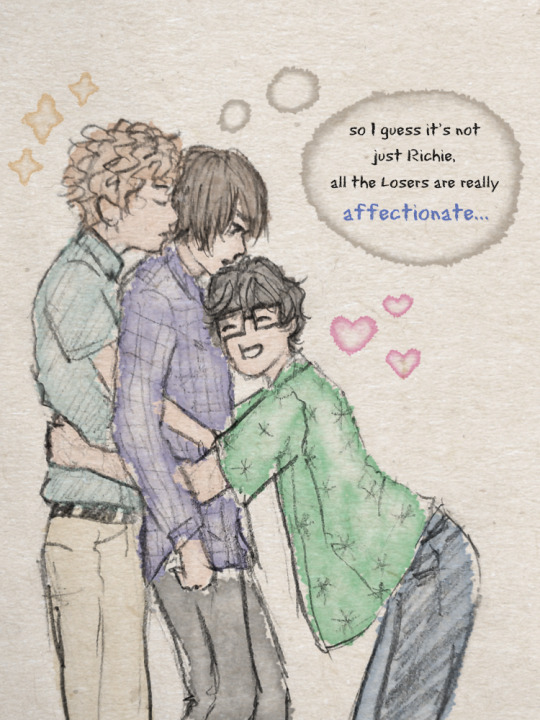
yeah yeah yeah he grew up with Michael Pining Wheeler so he's never had a personal space in his life but like there comes a point when it is no longer Mike's fault. (yeah the party and the rest of the st cast still exist in this au they just don't get acknowledged very often...I'm. fuckin Busy with other shit)
I am too tired to type more atm but I'm reserving the space because I WILL go off in the near future
but ay if you clicked the read more to see this much, feel free to ask something and give me an excuse to yell without drawings
or perhaps I can offer you a ryers discord invite in this trying time
edit: I went off but not in the way I intended
#will byers#richie tozier#stanley uris#stozyers#my post#art#ryers#byeris#stranger things#it 2019#it 2017
48 notes
·
View notes